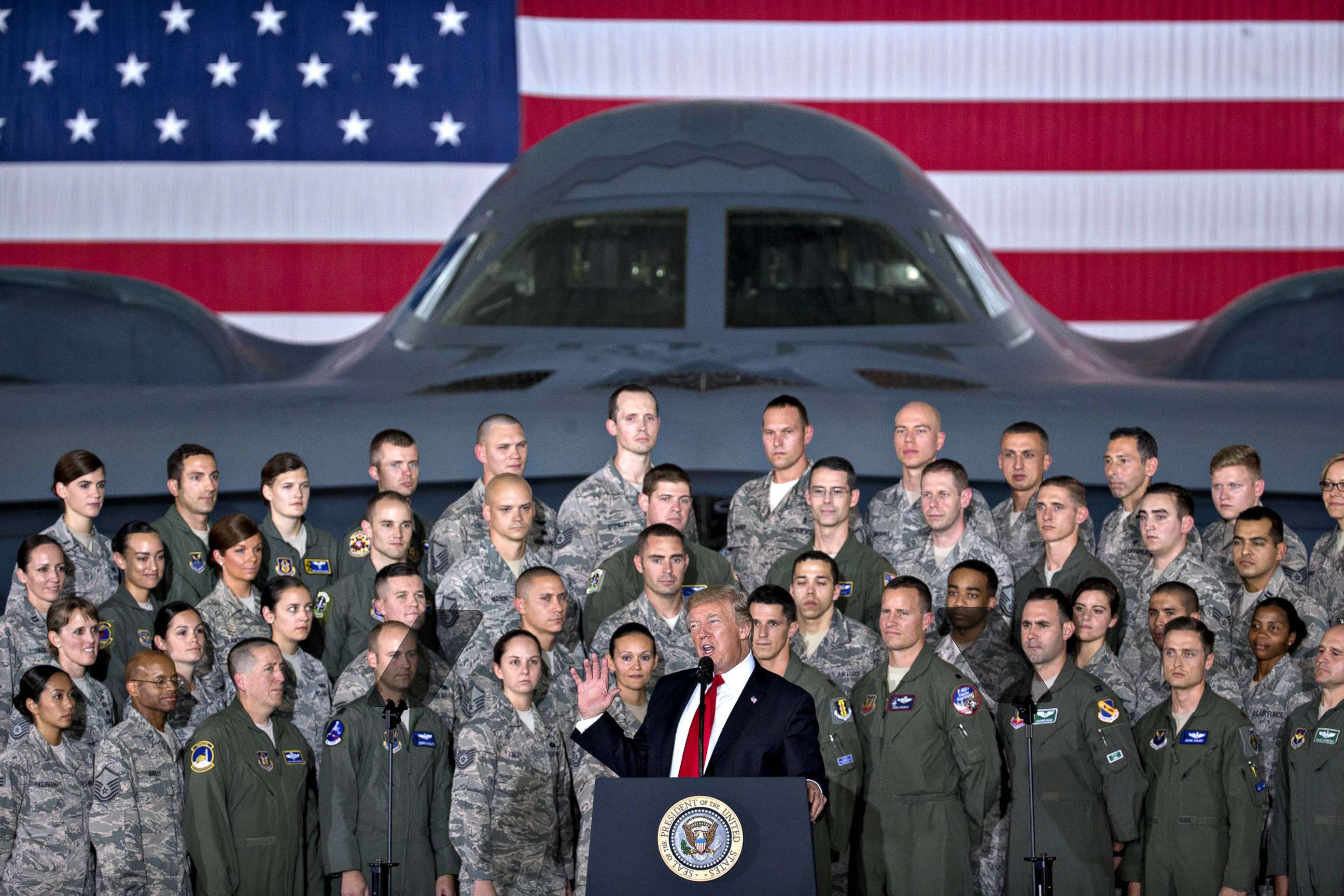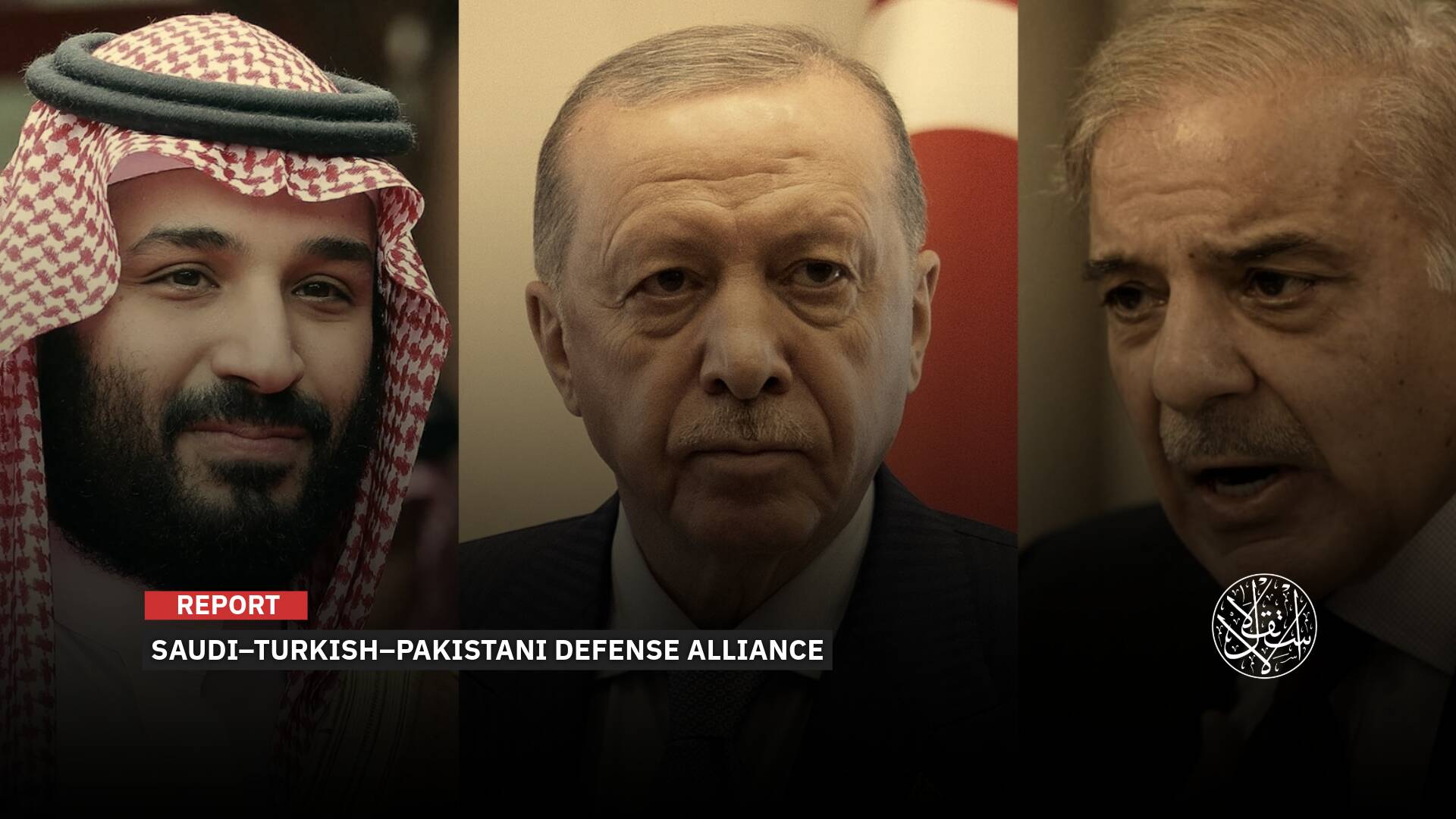Loyalty vs. Competence: How Trump Is Pushing US Military Into the Unknown

“The Pentagon recently began laying off approximately 5,400 probationary workers.”
In what it described as a purge at the Pentagon, the New York Times criticized US President Donald Trump for preferring personal loyalty over experience and competence when appointing his allies to senior and sensitive positions.
A few days ago, Trump fired the Chairman of the Joint Chiefs of Staff and five senior military leaders, in what was considered an exceptional measure in the Pentagon.
These firings came in conjunction with Trump's pick of a relatively unknown retired general as a senior military advisor, reinforcing fears of politicizing the military institution, which is supposed to remain neutral under the Constitution.
They also came after a proposal submitted by Pete Hegseth, Secretary of Defense in the Trump administration, to dismiss any military official involved in dirty ‘WOKE’ politics, as he put it.
The ‘WOKE’ movement in the U.S. adopts awareness of the injustices against ethnic, sexual and religious minorities, and all forms of discrimination, and the need to support and defend those minorities.
Premeditated Firings
Trump’s surprise decision to fire Joint Chiefs of Staff Chairman Gen. Charles Q. Brown Jr., Chief of Naval Operations Adm. Lisa Franchetti, and other senior Pentagon officials last month has sparked widespread concern.
The firings of Brown and Franchetti were not entirely surprising, as Trump and his supporters have criticized them for focusing on diversity policies rather than achieving military victories.
Among those ousted were Gen. James Slife, the Air Force’s vice chief of staff and the top military lawyer for the Army, Navy and Air Force.
Hegseth also removed his senior military assistant, Air Force Lt. Gen. Jennifer Short.
The head of the Coast Guard, Adm. Linda Fagan, was fired the day after Trump’s inauguration.
But the manner in which the firings have drawn widespread dismay among retired generals, lawmakers and civil-military relations experts, according to the Washington Post.
Retired Gen. Martin Dempsey, a former chairman of the Joint Chiefs of Staff, commented on the decision by saying that “preemptively firing generals would only politicize the military and make it less candid, less ready, less professional and less lethal.”
On the other hand, Vice President J.D. Vance defended Trump’s decisions, noting that previous US presidents had fired prominent generals.
“Harry Truman, who fired General Douglas MacArthur over disagreements over the Korean War, and Barack Obama, who fired General Stanley McChrystal after making offensive remarks about the administration,” Vance said.
Although Gen. Brown has been careful to stay out of politics during his term, some of his past remarks about racial diversity in the military may have made him a target for dismissal.
Adm. Franchetti, the first woman to lead the US Navy, was criticized by Hegseth, who described her appointment as a decision based on diversity policies rather than merit, despite her command of the US Sixth Fleet in Europe and command of an aircraft carrier battle group.

Loyalty vs. Competence
On the other hand, the appointment of retired Lt. Gen. Dan Caine, who left the military less than a year ago, has also added to the controversy, especially since he does not meet the traditional criteria for the position of chairman of the Joint Chiefs of Staff.
Under US law, a candidate must have served as vice chief of staff, commanded a branch of the military, or headed a major combatant command, unless the president decides to exempt it for the national interest.
Caine served as a fighter pilot in the National Guard, led special forces in Iraq, and served as assistant director for military affairs at the CIA.
Experts say Caine’s appointment sends a worrying message to senior military officers that personal loyalty trumps military competence.
Katherine Kuzminski, a scholar at the Center for a New American Security, told the Washington Post that “bypassing the traditional military establishment in favor of an unlikely figure creates instability among senior officers.”
Kori Schake, a scholar at the American Enterprise Institute, said that “calling a retired officer to the position reflects Trump’s loss of confidence in current military leadership.”
Democrats have condemned the campaign to rid the military of leaders who support diversity and equality in the ranks.
Rep. Seth Moulton, a Massachusetts Democrat, said that “the firings were un-American, unpatriotic, and dangerous for our troops and our national security.”

Major Cuts
Reuters reported that the unprecedented change in the leadership of the US military could lead to a state of turmoil in the Department of Defense, which is already preparing to implement radical reforms to its budget, in addition to changing the deployment of US military forces under Trump's new foreign policy.
By up to 8% annually, the Trump administration ordered senior military leaders to develop plans to reduce the defense budget. This reduction is equivalent to about $290 billion over 5 years.
The defense budget for 2025 is about $850 billion, while lawmakers are calling for continued heavy military spending to confront threats, especially from China and Russia.
Meanwhile, the Department of Defense announced that it intends to reduce its civilian workforce by between 5 and 8%, in a new step within the framework of the Trump administration's stated desire to reduce the number of employees.
“The cuts are necessary to produce efficiencies and refocus the Pentagon on Trump’s national security priorities,” senior Pentagon official Darin Selnick said in a statement.
“We anticipate laying off approximately 5,400 probationary workers beginning next week as part of this initial effort, and then we will freeze hiring while we further analyze our staffing needs,” he added.
Defense Secretary Hegseth announced that the committee, led by Secretary Elon Musk, will have broad influence in the Pentagon to target Democratic policies, particularly those that promote diversity.
Trump has tasked billionaire Musk with making deep cuts to public spending, with a significant reduction in the number of employees in the department, as well as eliminating programs that encourage the inclusion of women and minorities.

Political Interference
The New York Times condemned Trump’s picks as favoring loyalty over competence.
It began its assessment with Defense Secretary Hegseth, criticizing him for lacking the military strategic experience required for his position, especially since his most important job during his career was as a news commentator for Fox News.
It expressed concern that Trump was undermining judicial oversight in American institutions, noting that the decision to fire Gen. Brown was accompanied by a comprehensive replacement of military prosecutors, who are the top lawyers in the Air Force, Navy and Army.
It warned that Trump had learned from the judicial obstacles he faced in his first term, and is now rushing to silence any lawyers or officials who might object to his plans, which often exceed the limits of the law and the Constitution.
Finally, the newspaper urged Congress and the American public to resist the president’s attempts to undermine democracy, stressing that he cannot silence elected officials.
A few days ago, five former US defense secretaries—William Perry, James Mattis, Leon Panetta, Chuck Hagel, and Lloyd Austin—wrote to Congress to hold Trump accountable for his reckless decisions.
They demanded that no new nominations for the Pentagon be approved before providing clear justifications for these dismissals.
They stressed that the dismissed leaders have excellent careers, and expressed their belief that the dismissals were for partisan reasons.

Military analyst Maj. Gen. Omar Melhem told Al-Estiklal that “Trump's politicization of the Pentagon comes within the framework of motives related to implementing his plan to withdraw the U.S. from many of its ties with NATO.”
“Trump aims for important military positions to owe him full personal and political loyalty, so that he does not encounter any kind of opposition through the legal powers of these leaders in several files,” he said.
“In general, political interference in military leadership, especially the dismissal of generals on the basis of ideological loyalty rather than competence, often leads to dire consequences, given that such decisions are driven by a desire for more personal control,” Maj. Gen. Melhem concluded.












